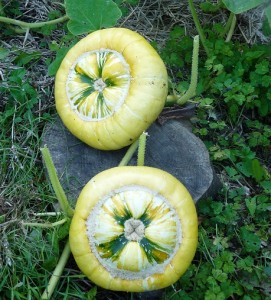In this our second instalment of guest blogs, Jono Stevens founder and chief of the excellent one man blog Real Men Sow “a cheery allotment blog”, tells us just how much an allotment can save you in a year.
Last year I decided to work out how much money I saved by growing my own veg.
I weighed every individual harvest during 2011, from 4g of mint leaves to over 3kg of tomatoes. My wife thought I was nuts. I thought it was brilliant (all 444 times I weighed something).
My overall harvest total was £473.90, leaving me with a tidy profit of just under £400, after outgoings, which included 2 fancy blueberry bushes. I didn’t factor in man-hours, but hey, you can’t really put a price on the joy that is allotment time.
For savings, fruit and veg you like to eat or are expensive in the shops are obviously the ones to grow but I also found all the other top saving veg shared other qualities too.
One such quality was versatility, you’ll want to be using the veg in many different dishes to maximise savings. Spinach or chard are great examples of veg with this characteristic (£28.67 saving in 2011). You can use it in all sorts of ways, from spreading on pizza, to folding into curries and bulking up quiches.
Spinach and chard are reliable veg, another important requirement. If you’re trying to save money, it’s difficult to justify risking time and space on iffy croppers. Beetroot (2011 saving of £42.77), French beans (£29.62) and potatoes (£18.94) are all dependable and dead easy to grow. They need next to no attention, aside from a quick weed and a little water.
Longevity helps too. If you’re canny, spinach and chard can be available for 9 months of the year, presenting optimum opportunities to save cash. Leeks (£27.73) and curly kale (£17.99) will last all through the winter as well.
The veg doesn’t have to just keep well in the ground or on the plot, though. Tomatoes, my biggest saver at £64.62, can be made into passata and frozen to use in pasta dishes or curries, whilst beetroots are easily pickled for use in winter salads.
A late row of beets can provide a real bonus when grown for this purpose, as will French beans sown for freezing. I’ve planted both these veg well into August, and being reliable and prolific croppers, have fed me all through winter.
Anything that stores well is definitely worth growing. Squashes (£41.29) are the kings of storing, and keep into the next spring if left in a cool, dry place. Crown Princes are the best ones I’ve found for storage, and last for months.

I love squashes and I’d say that if you want to grow a single veg to save money, then squash is the one to go for. They’re expensive in the shops, prolific if treated well, reliable, tasty, attractive and incredibly versatile in the kitchen.
Money saving isn’t necessarily the main reason for growing veg, but last year’s experiment has certainly focused my mind on what I grow and how much attention to pay to certain crops.
When I made my first picking of 2012 I felt a little peculiar not to have weighed my veg, but it’s still great to know that each time I harvest, I’m saving myself a few quid.

Good info there, My poor garden just doesn’t get good sun where I’m at now. I need to work on that.
Useful post, thanks. I’d never have the patience to weigh and value like this – am really impressed.
I think £400 is a good profit on top of an activity that keeps you fit and feeds you fresh produce. A lot of people spend that much or more on hobbies.
You made more though because the blueberry bushes are forever hopefully. I was looking at some the other day and feel very tempted to invest.
Nice post on the actual numbers. I live in Alaska, so things like squash and tomatoes are more difficult to grow successfully, but I bet I am saving money, too. Perhaps I will do a weigh-in experiment of my own this year, just out of curiosity. But like you say, you can’t put a price on the joy spent in the garden. My time outside is as healthy as the food I grow,